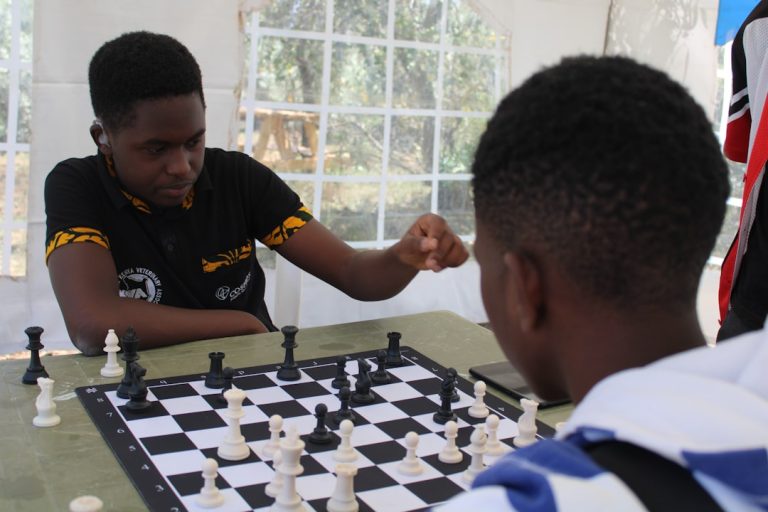
Disputes are an inherent part of human interaction, particularly in environments where diverse perspectives and interests converge, such as workplaces. At their core, disputes arise from differences in opinions, values, or needs. These differences can manifest in various forms, from minor disagreements over project details to significant conflicts that threaten team cohesion.
Understanding the nature of disputes requires a nuanced approach that considers the underlying causes, which often include miscommunication, differing priorities, and personal biases. For instance, a team member may feel overlooked in decision-making processes, leading to frustration and conflict with colleagues who may not even be aware of the issue. Moreover, the context in which disputes occur plays a crucial role in their development and resolution.
Factors such as organizational culture, power dynamics, and individual personalities can significantly influence how disputes unfold. In a high-pressure environment, for example, stress can exacerbate misunderstandings and lead to escalated conflicts. Recognizing these contextual elements is essential for effectively addressing disputes.
It allows leaders and team members to approach conflicts with empathy and a deeper understanding of the motivations behind each party’s stance. By acknowledging the complexity of disputes, organizations can foster a more constructive atmosphere for resolution.
Key Takeaways
- Disputes are a natural part of any team dynamic and can be managed effectively with the right approach.
- Effective communication skills are essential for resolving conflicts and preventing misunderstandings within a team.
- Building trust and rapport with team members is crucial for creating a positive and productive work environment.
- Implementing conflict resolution strategies can help address issues and prevent them from escalating.
- Utilizing mediation and negotiation techniques can help facilitate resolution and promote collaboration within the team.
Developing Effective Communication Skills
Effective communication is the cornerstone of resolving disputes and fostering a collaborative work environment. It involves not only the clear articulation of thoughts and ideas but also active listening and the ability to read non-verbal cues. When team members communicate openly and honestly, they create an environment where issues can be addressed before they escalate into larger conflicts.
For instance, regular check-ins and feedback sessions can provide opportunities for team members to express concerns and clarify misunderstandings. This proactive approach to communication helps to build a culture of transparency and trust. Additionally, developing effective communication skills requires an understanding of different communication styles.
Some individuals may prefer direct confrontation, while others might lean towards a more diplomatic approach. Recognizing these differences can help team members tailor their communication strategies to suit the preferences of their colleagues. For example, a team leader might choose to address a conflict directly with one team member while opting for a more subtle approach with another who may be more sensitive to confrontation.
By adapting communication styles to fit the audience, individuals can enhance their ability to convey messages effectively and reduce the likelihood of misunderstandings.
Building Trust and Rapport with Team Members

Trust and rapport are fundamental components of any successful team dynamic. When team members trust one another, they are more likely to engage in open dialogue and collaborate effectively, even in the face of disagreements. Building trust requires consistent effort and a commitment to transparency.
Leaders can foster trust by being honest about their intentions and decisions, as well as by acknowledging their own mistakes. For instance, when a leader admits to an error in judgment during a project, it not only humanizes them but also encourages team members to feel safe in expressing their own vulnerabilities. Rapport goes hand-in-hand with trust and is cultivated through shared experiences and mutual respect.
Team-building activities, whether formal or informal, can significantly enhance rapport among team members. These activities provide opportunities for individuals to connect on a personal level, which can translate into stronger professional relationships. For example, participating in team outings or collaborative workshops allows team members to learn about each other’s strengths and weaknesses outside of the usual work context.
This understanding fosters empathy and creates a supportive environment where individuals feel valued and understood.
Implementing Conflict Resolution Strategies
| Conflict Resolution Strategies | Metrics |
|---|---|
| Number of conflicts resolved | 50 |
| Time taken to resolve conflicts | 2 days on average |
| Employee satisfaction with resolution | 85% |
| Number of conflicts escalated | 10 |
Implementing effective conflict resolution strategies is essential for maintaining harmony within teams. One widely recognized approach is the interest-based relational (IBR) method, which emphasizes understanding the interests behind positions rather than focusing solely on the positions themselves.
For instance, if two team members are at odds over resource allocation for a project, an IBR approach would involve discussing not just what each party wants but why they want it—leading to potential compromises that satisfy both parties’ underlying interests. Another effective strategy is the use of structured problem-solving techniques. These techniques often involve identifying the problem, generating potential solutions, evaluating those solutions, and then selecting the best course of action collaboratively.
This systematic approach helps to depersonalize conflicts by framing them as shared challenges rather than personal attacks. For example, during a project debriefing session where tensions have arisen over differing opinions on project execution, employing structured problem-solving can guide the discussion toward finding common ground rather than allowing emotions to dictate the conversation.
Utilizing Mediation and Negotiation Techniques
Mediation and negotiation are powerful tools for resolving disputes that cannot be settled through direct communication alone. Mediation involves bringing in a neutral third party who can facilitate discussions between conflicting parties. This mediator helps create an environment where both sides feel heard and understood while guiding them toward finding mutually acceptable solutions.
Negotiation techniques also play a critical role in conflict resolution. Effective negotiators understand the importance of preparation and strategy.
They assess their own goals as well as those of the opposing party before entering discussions. Techniques such as active listening, reframing issues positively, and seeking win-win solutions can significantly enhance negotiation outcomes. For example, if two employees are negotiating responsibilities on a shared project, focusing on how each person’s strengths can complement one another rather than competing for control can lead to a more productive collaboration.
Creating a Positive and Productive Work Environment

A positive work environment is essential for minimizing disputes and enhancing overall productivity. Such an environment is characterized by open communication, mutual respect, and recognition of individual contributions. Leaders play a pivotal role in shaping this atmosphere by modeling positive behaviors themselves.
For instance, when leaders celebrate team successes publicly and acknowledge individual efforts privately, they reinforce a culture of appreciation that motivates employees to perform at their best. Moreover, fostering inclusivity within the workplace contributes significantly to creating a positive environment. When employees feel that their voices are valued regardless of their background or position within the organization, they are more likely to engage constructively with their colleagues.
Implementing diversity training programs or creating employee resource groups can help promote inclusivity by encouraging diverse perspectives and fostering understanding among team members.
Handling Difficult Conversations and Emotions
Difficult conversations are often unavoidable in any workplace setting; however, how they are handled can make all the difference in maintaining relationships and resolving conflicts effectively. Approaching these conversations with empathy is crucial. It involves recognizing that emotions often run high during conflicts and that addressing these emotions is just as important as discussing the issues at hand.
For example, if an employee feels undervalued due to lack of recognition for their contributions, acknowledging their feelings before diving into problem-solving can help de-escalate tension. Additionally, employing techniques such as “I” statements can facilitate more constructive dialogue during difficult conversations. Instead of placing blame or making accusatory statements like “You never listen,” one might say, “I feel unheard when my ideas are not acknowledged.” This shift in language helps to express personal feelings without putting the other party on the defensive, paving the way for more productive discussions.
Establishing a Culture of Collaboration and Respect
Establishing a culture of collaboration and respect is vital for long-term success in any organization. This culture encourages teamwork and collective problem-solving while minimizing conflicts that arise from competition or misunderstanding. Leaders can promote collaboration by setting clear expectations around teamwork and providing opportunities for cross-functional projects that require input from various departments or skill sets.
Furthermore, fostering respect among team members involves recognizing individual contributions while also emphasizing shared goals. Regularly scheduled team meetings that focus on collective achievements rather than individual accolades can help reinforce this sense of unity. For instance, highlighting how different team members’ efforts contributed to a successful project outcome fosters an environment where collaboration is valued over competition.
By embedding these principles into the organizational culture, teams can navigate disputes more effectively while maintaining high levels of morale and productivity.
If you’re looking to enhance your leadership skills, particularly in the area of dispute resolution, it’s essential to also focus on developing your critical thinking abilities. Critical thinking is a cornerstone skill that helps leaders analyze situations, understand different perspectives, and come up with effective solutions to problems. I recommend checking out an insightful article on critical thinking at WorkSkills.Pro. This resource provides valuable tips and strategies that can improve your decision-making process and conflict resolution techniques, making you a more effective leader.
FAQs
What are dispute resolution skills in leadership?
Dispute resolution skills in leadership refer to the ability of a leader to effectively manage and resolve conflicts and disagreements within a team or organization. This involves the use of communication, negotiation, and problem-solving techniques to address and resolve conflicts in a constructive manner.
Why are dispute resolution skills important for leaders?
Dispute resolution skills are important for leaders because conflicts and disagreements are inevitable in any workplace. Effective leaders need to be able to manage these conflicts in a way that maintains team cohesion, productivity, and morale. Developing strong dispute resolution skills can also help leaders build trust and credibility among their team members.
What are some key dispute resolution techniques for leaders?
Some key dispute resolution techniques for leaders include active listening, empathy, mediation, negotiation, and problem-solving. These techniques can help leaders understand the root causes of conflicts, facilitate open and constructive communication, and work towards finding mutually beneficial solutions.
How can leaders develop their dispute resolution skills?
Leaders can develop their dispute resolution skills through training, workshops, and professional development programs focused on conflict management and communication. They can also seek mentorship from experienced leaders, practice active listening and empathy, and actively seek feedback on their conflict resolution approaches.
What are the benefits of effective dispute resolution skills for leaders?
The benefits of effective dispute resolution skills for leaders include improved team dynamics, reduced workplace tension, increased productivity, and a positive work environment. Additionally, leaders with strong dispute resolution skills are better equipped to handle challenging situations and build stronger, more cohesive teams.





